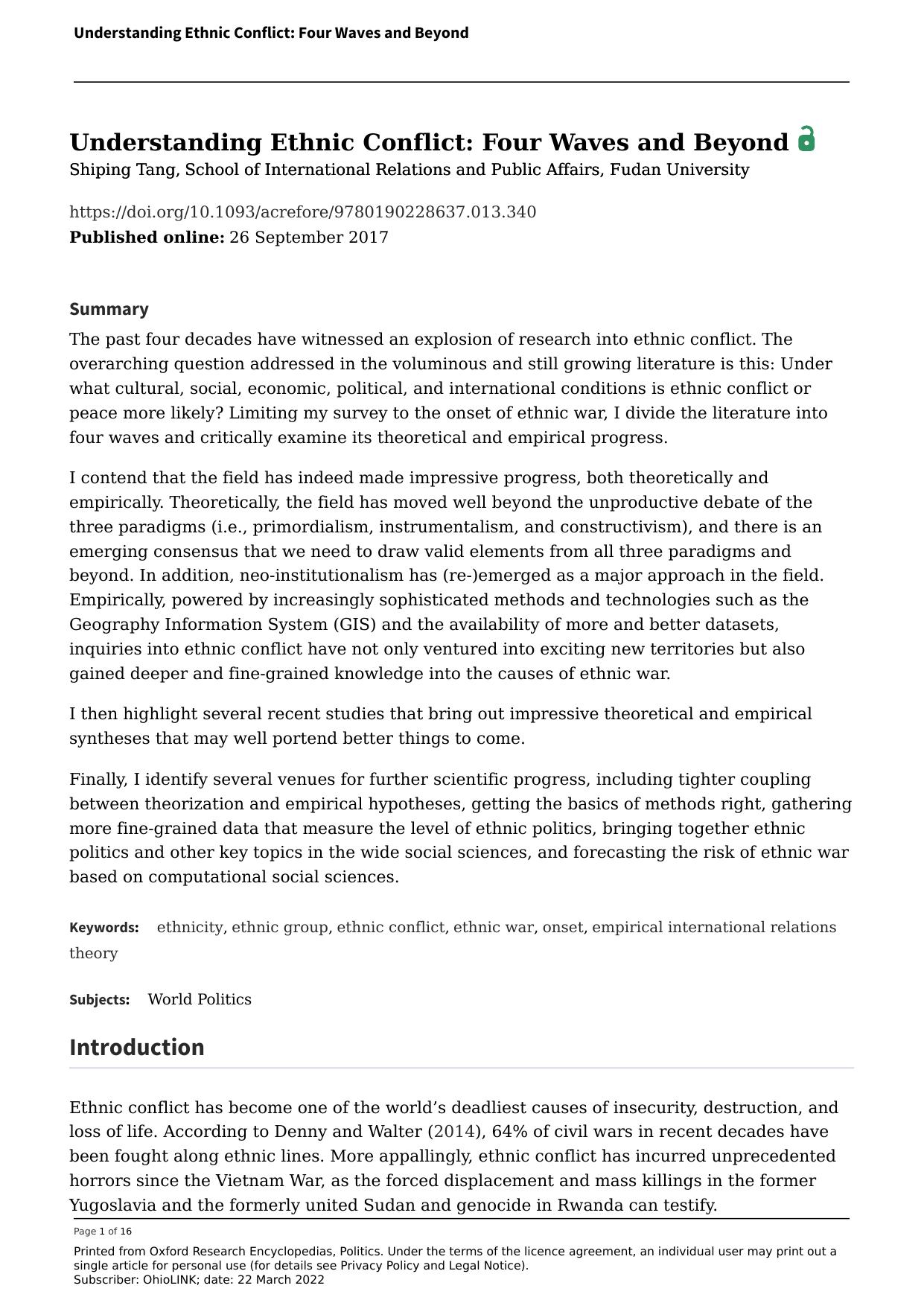
Understanding Ethnic Conflict: Four Waves and Beyond | Oxford Research Encyclopedia of Politics PDF
2017·1.3414 MB·other
Most books are stored in the elastic cloud where traffic is expensive. For this reason, we have a limit on daily download.
Preview Understanding Ethnic Conflict: Four Waves and Beyond | Oxford Research Encyclopedia of Politics
Description:
The past four decades have witnessed an explosion of research into ethnic conflict. The overarching question addressed in the voluminous and still growing literature is this: Under what cultural, social, economic, political, and international conditions is ethnic conflict or peace more likely? Limiting my survey to the onset of ethnic war, I divide the literature into four waves and critically examine its theoretical and empirical progress.I contend that the field has indeed made impressive progress, both theoretically and empirically. Theoretically, the field has moved well beyond the unproductive debate of the three paradigms (i.e., primordialism, instrumentalism, and constructivism), and there is an emerging consensus that we need to draw valid elements from all three paradigms and beyond. In addition, neo-institutionalism has (re-)emerged as a major approach in the field. Empirically, powered by increasingly sophisticated methods and technologies such as the Geography Information System (GIS) and the availability of more and better datasets, inquiries into ethnic conflict have not only ventured into exciting new territories but also gained deeper and fine-grained knowledge into the causes of ethnic war.I then highlight several recent studies that bring out impressive theoretical and empirical syntheses that may well portend better things to come.Finally, I identify several venues for further scientific progress, including tighter coupling between theorization and empirical hypotheses, getting the basics of methods right, gathering more fine-grained data that measure the level of ethnic politics, bringing together ethnic politics and other key topics in the wide social sciences, and forecasting the risk of ethnic war based on computational social sciences.
See more
The list of books you might like
Most books are stored in the elastic cloud where traffic is expensive. For this reason, we have a limit on daily download.
